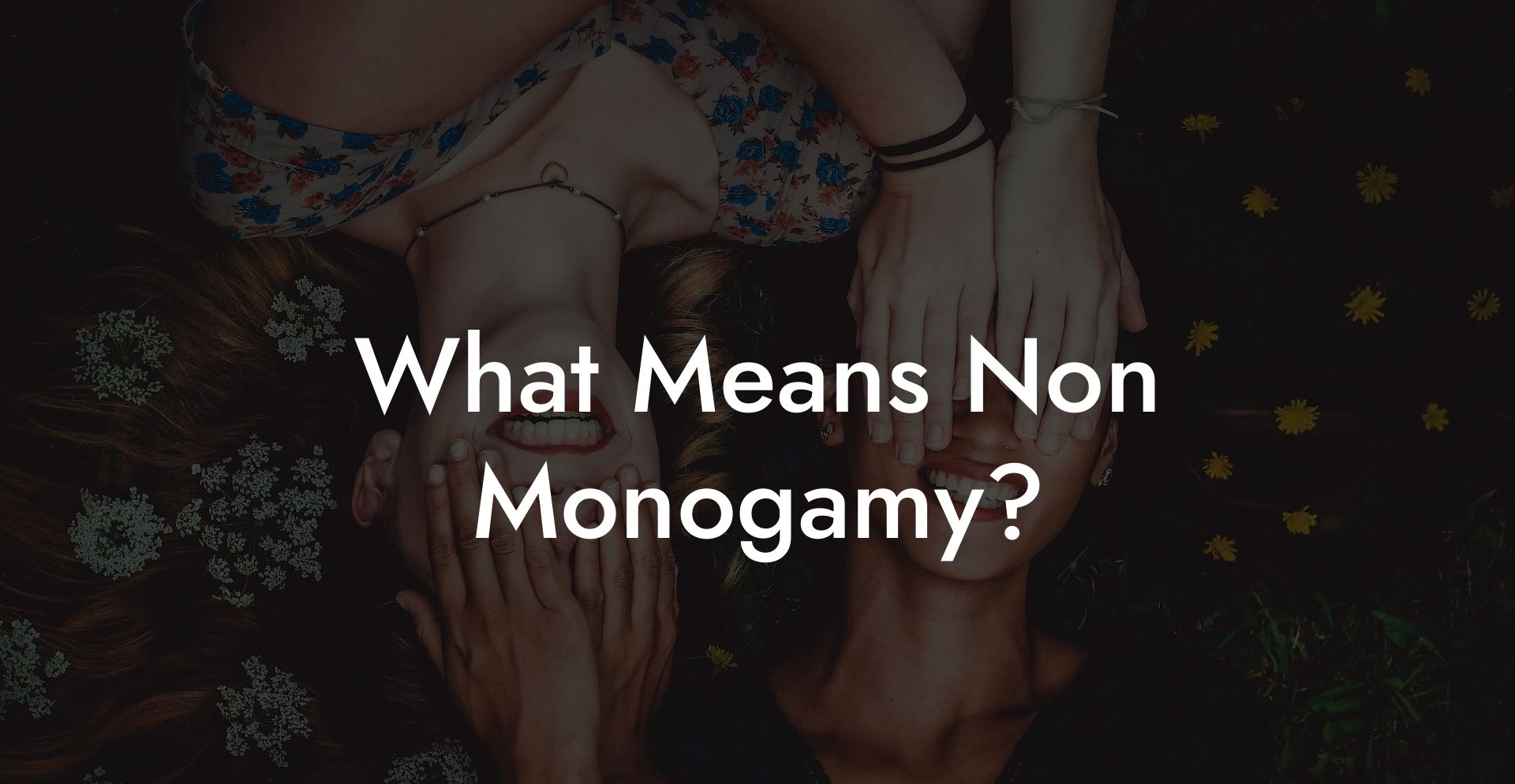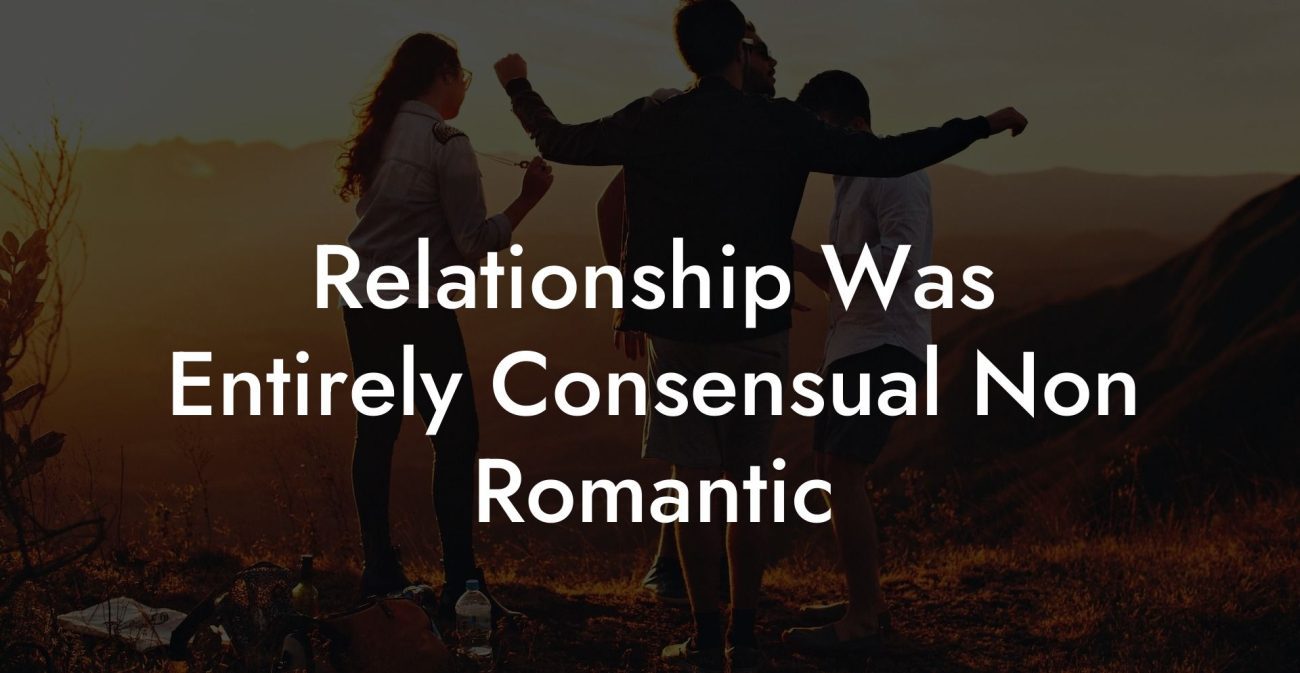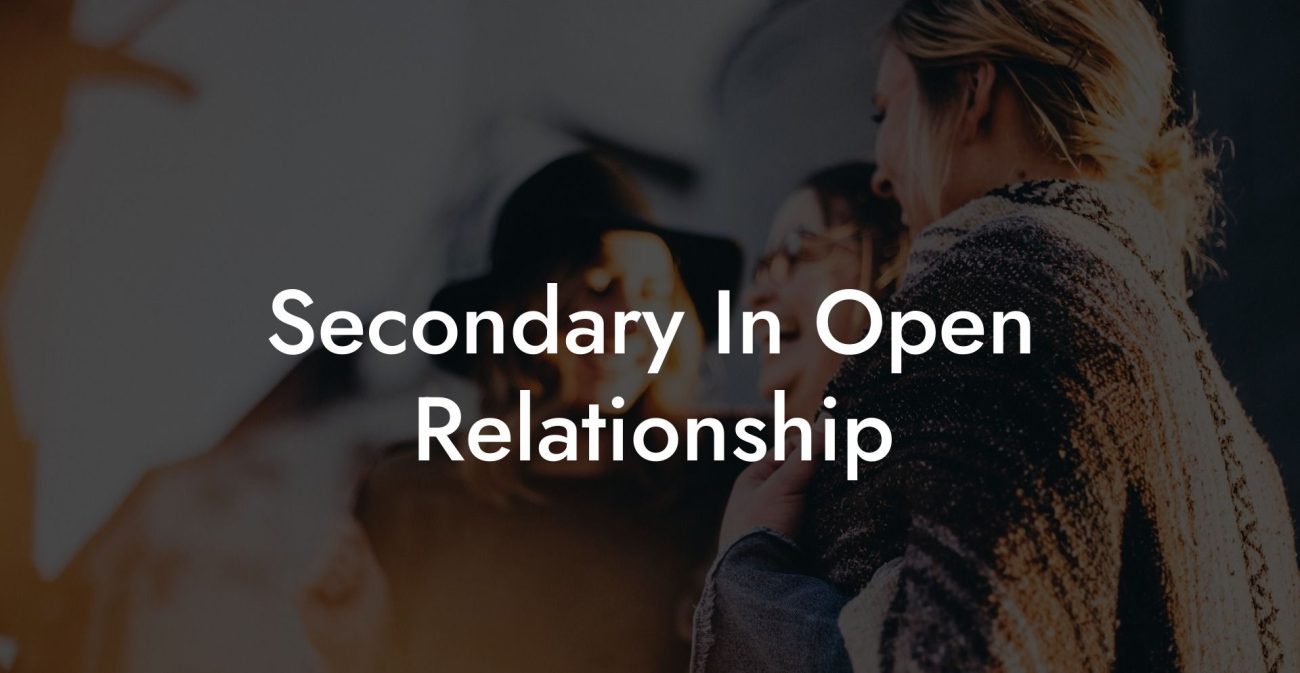In today's world, relationships come in many shapes and sizes. Traditional monogamous relationships aren't the only option anymore, and many people have started exploring other relationship styles like non-monogamy. But what does non-monogamy mean? Is it just swapping partners or something more? In this article, we will delve into the world of non-monogamy, its different forms, and how it can affect people's lives. Whether you're curious about non-monogamy or considering it for yourself, our comprehensive guide will provide a helpful insight into this alternative relationship style.
What Means Non Monogamy Table of Contents
Non-monogamy is an umbrella term that encompasses various relationship styles in which an individual has multiple romantic or sexual partners. It's essential to recognize that non-monogamy isn't a one-size-fits-all concept. There are different forms of non-monogamy, each with its unique structure, rules, and dynamics. Let's explore some of the most common types:
Open relationships
In this form of non-monogamy, a couple decides to remain emotionally committed to each other while allowing each other to explore other sexual or romantic connections. The rules and boundaries vary from one relationship to another, but open communication and honesty are crucial.
Swinging
Swinging refers to couples who engage in casual sexual encounters with other couples or individuals, typically during parties or organized club events. Emotional involvement is usually limited in this form of non-monogamy, with the focus being on sexual exploration and pleasure rather than deep romantic connections.
Polyamory
This relationship style involves multiple consensual, committed, and emotionally invested romantic relationships with the knowledge and consent of all involved. Polyamorous relationships can take many forms, such as triads, quads, or complex networks of interconnected partners.
Relationship anarchy
This form of non-monogamy is characterized by the absence of hierarchy or set rules between partners. Individuals practicing relationship anarchy prioritize their personal autonomy within every relationship, often rejecting traditional labels, roles, and expectations.
Example
Let's meet Sarah and Mike, a couple who have been together for five years. After discussing their desires, goals, and boundaries, they decide to try an open relationship. Both have the freedom to pursue casual, short-term connections with other people while maintaining their emotional commitment to each other.
They regularly communicate their needs, feelings, and experiences with each other, fostering an atmosphere of trust and honesty. Both Sarah and Mike have met multiple partners throughout their non-monogamous journey, enriching their personal lives and even strengthening their relationship in the process.
There is no right or wrong way to structure a relationship. What matters most is that all involved are consenting, communicative, and honest about their desires and boundaries. Non-monogamy has the potential to be a fulfilling and enriching relationship style, but it's essential to approach it with understanding, patience, and self-awareness.
If this article sparked your interest in non-monogamous relationships, we encourage you to share it with others and explore the many other resources available on The Monogamy Experiment. Together, we can break away from the traditional mold and embrace the vast and diverse landscape of modern relationships.













